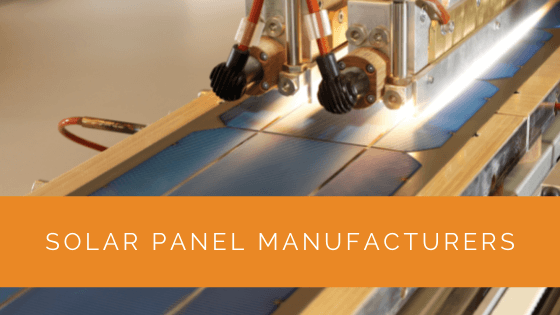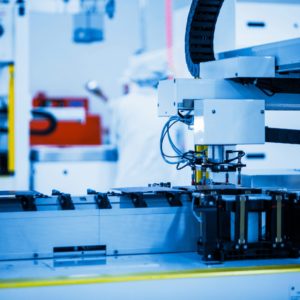Sustainable living has become a byword for our modern times. The push for solar energy has increased rooftop solar systems, with some companies building them right onto their roofs.
Solar panels use photovoltaics to convert sunlight into electricity.
Today, photovoltaic cells have become more efficient and less toxic, allowing them to be widely used as a viable alternative to fossil fuels for electricity generation.
Contents
- 1 Key Takeaways
- 2 Property Analysis Before Buying
- 3 Manufacturing Solar Panels
- 4 Free Solar Panels Agreement in the UK
- 5 Planning and Legal Permissions Associated with a Solar Panel System
- 6 Things to Bear in Mind When Choosing Solar Panels
- 7 Manufacturers Selling the Solar Panels Whose Output Is Not Affected?
- 8 Case Study: Implementing High-Efficiency Solar Panels in a Residential Project
- 9 Expert Insights From Our Solar Panel Installers About Solar Panel Manufacturers in the UK
- 10 Discover the Power of Solar with Solar Panels Network
- 11 The Final Note of Reasons We Should Use Solar Panels
Key Takeaways
- Solar panels have become an efficient and eco-friendly alternative to fossil fuels for electricity generation, promoting sustainable living.
- When considering solar panel installation in the UK, factors such as roof space, sunlight exposure, and installer reputation should be carefully evaluated.
- The UK government offers free solar panels, but homeowners should assess multiple quotes, installer experience, and potential agreements before accepting such offers.
Property Analysis Before Buying
Getting a photovoltaic system for your home is a big decision. It requires you to look around your space and make some tough choices.
The cost of the system can range from £4000 to £6000, depending on how much roof space you have available and how many panels you can install. The more roof space you have available, the more panels you can install, and the more energy they will produce.
In the United Kingdom, the southern direction receives sunlight throughout the day.
Manufacturing Solar Panels
- Silicon is produced by heating quartz sand in an arc furnace at extremely high temperatures.
- Hundreds of silicon rocks are melted down into cylindrical ingots by adding boron to give the silicon a positive electrical polarity and then sliced into paper-thin wafers with a wire saw.
- The sides of the wafer, also known as the substrate, are sacrificed to leave an octagonal solar cell. It allows for more efficient use of space in the module.
- It has an anti-reflective coating, added conductors, and a phosphorus layer diffused to give a negative electrical charge.
- They’re soldered together to make a rectangular solar panel with a metal frame, glass front and polymer back sheet to protect the cells.
- Instead of cutting polycrystalline cells from ingots of pure silicon, they are made by melting multiple crystals directly into square moulds.

Free Solar Panels Agreement in the UK
Though solar panels have a lot of benefits, they require a significant initial investment. Although the price of solar panels is dropping, it will be long before it becomes affordable for low-income families. However, countries like The United Kingdom are giving them free of cost.
We have listed some of the things you might want to think about before accepting any offer of this kind:
- Always get quotes from 3-4 companies and pick the one you feel most comfortable with.
- Find out how many previous installations the installer has completed and what was the customer’s feedback.
- Do not just decide based on price; consider quality, reputation and customer service.
- What happens if the free solar company goes out of business?
Know about the agreements the government has made.
Planning and Legal Permissions Associated with a Solar Panel System
In England and Wales, the installation of solar panels on domestic properties falls under the permitted development laws. It means there is no need to apply for planning permission from the local council.
There are some legal points to be noted:
- You must not install solar panels above the uppermost portion of a building.
- Solar panels should not project more than 20cm over the roof surface or wall face onto which they are being mounted.
- Panels should be installed whenever possible to reduce the negative visual impact of the building’s exterior.
- You must not install panels on a property located within the grounds of a listed building unless the building proprietor’s consent has been obtained.
- Another exception is if your property is listed or located in a conservation area. You should check with your local planning officer before making any plans to alter the exterior of your home.
Note: Before investing in photovoltaic technology, it is important to contact your home insurer about installation coverage (including theft of and damage to the array).

Things to Bear in Mind When Choosing Solar Panels
- Reliability: you want panels that will last for decades (25 years minimum), so it’s worth investing in a company you expect to be around to support any issues that might arise. Check how long the company’s around and the reviews of its customer service.
- Extended warranties: tying into reliability, these indicate the faith manufacturers put in their products and the support you can count on if anything goes wrong.
Manufacturers Selling the Solar Panels Whose Output Is Not Affected?
Have you ever wanted to know when your solar panels will produce the most energy?
The reality is that solar panels are more effective at generating energy during spring and summer than in winter. The days are longer, and the sun is higher in the sky, meaning there’s more energy to generate!
Over 70% of our output will be generated in the spring and summer.
The output of the panels is affected only by the climate and environment. Manufacturers did not have a proper solution for this issue till now.
Case Study: Implementing High-Efficiency Solar Panels in a Residential Project
Background
As part of our commitment to promoting sustainable energy solutions, Solar Panels Network was engaged by a homeowner looking to reduce their energy bills and carbon footprint. The client was particularly interested in using high-efficiency solar panels from reputable UK manufacturers to maximise energy production and long-term reliability.
Project Overview
The primary objective was to install a solar photovoltaic (PV) system on the homeowner’s south-facing roof. The client aimed to utilise the best available technology to ensure high energy output throughout the year, even during the UK’s less sunny months. The project also focused on selecting a solar panel manufacturer known for its reliability and strong customer service.
Implementation
- Site Assessment: We conducted a detailed assessment of the roof’s orientation, structural integrity, and available space to determine the optimal layout for the solar panels.
- Selection of Solar Panels: Based on efficiency, durability, and warranty offerings, we chose high-efficiency monocrystalline panels from a leading UK manufacturer.
- System Installation: Our team installed the solar panels, ensuring they were securely mounted and angled correctly to capture maximum sunlight.
- Electrical Integration: We connected the system to the home’s electrical grid, including the installation of an inverter and a monitoring system for real-time performance tracking.
- Quality Control: A final inspection was conducted to ensure all components were functioning correctly and the system met all safety standards.
Results
- Increased Energy Production: The high-efficiency panels provided a significant increase in electricity generation, particularly noticeable during the peak summer months.
- Cost Savings: The homeowner reported a substantial reduction in their energy bills, with the system expected to pay for itself within the projected timeframe.
- Environmental Impact: The installation reduced the household’s carbon footprint, contributing positively to the environment by utilising clean energy.
- Customer Satisfaction: The client was particularly pleased with the quality of the panels and the professional service provided, highlighting the smooth installation process and clear communication from our team.
Summary
This project demonstrates the importance of selecting high-quality, efficient solar panels and working with a knowledgeable installation team. By choosing reputable manufacturers and carefully planning the system layout, we ensured optimal energy production and customer satisfaction. Solar Panels Network continues to be a leader in delivering sustainable energy solutions that meet the unique needs of each client.
Expert Insights From Our Solar Panel Installers About Solar Panel Manufacturers in the UK
Choosing the right solar panel manufacturer is crucial for long-term reliability and performance. It’s essential to invest in panels that have a proven track record and come with extensive warranties, ensuring support if issues arise.
Lead Solar Engineer
With solar technology advancing rapidly, it’s important to consider the efficiency of the photovoltaic cells used in panels. High-efficiency panels can generate more electricity, even on cloudy days, which is particularly beneficial in our climate.
Senior Installation Manager
Evaluating the reputation and customer service of a solar panel manufacturer is just as important as the product itself. A company that offers excellent support can make a big difference, especially when dealing with technical or warranty issues.
Solar Installation Specialist
Discover the Power of Solar with Solar Panels Network
Are you navigating the world of solar installations? Look no further than Solar Panels Network, the UK’s trusted partner in harnessing the sun’s potential. Our dedication goes beyond just installations; we’re on a mission to transform how homeowners and businesses across the UK perceive and utilise energy. By choosing us, you’re reducing your carbon footprint and making a smart financial move that promises savings for years ahead. Contact us today and embark on your solar journey.
The Final Note of Reasons We Should Use Solar Panels
- Renewable energy: Solar energy is the most effective renewable source because of the reliable amount of solar radiation the Earth receives.
- Compact: Solar PV panels have a small carbon footprint, and as the materials are increasingly recycled, they continue to shrink.
- You could save money on your electric bills because you generate and use, not buy, power from your supplier.
- No permit is required as solar panels are considered ‘permitted development’ and can be installed on your roof.
- Solar panels require very little maintenance. They are typically installed at an angle, allowing rain to run off freely, washing dirt and dust away.
- You’re contributing to a more efficient way of generating energy, as your power will come from your rooftop, so less energy is wasted.
- Potential tax credits in the future.
About the Author
Solar Panels Network stands at the forefront of solar energy solutions, driven by a team of seasoned solar engineers and energy consultants. With over decades of experience in delivering high-quality solar installations and maintenance, we are committed to promoting sustainable energy through customer-centric, tailored solutions. Our articles reflect this commitment, crafted collaboratively by experts to provide accurate, up-to-date insights into solar technology, ensuring our readers are well-informed and empowered in their solar energy decisions.


